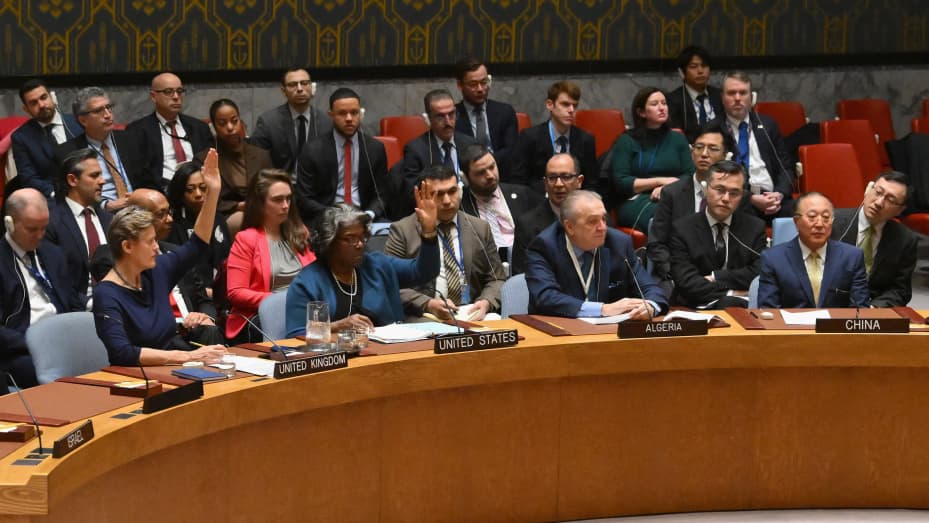The United Nations Security Council adopted a US-drafted resolution on Monday supporting a ceasefire plan in Gaza. This move comes as part of an intense diplomatic campaign led by Washington to urge Hamas to accept the proposal. The resolution received 14 votes in favor, with Russia abstaining, and underscores a significant international effort to halt hostilities in the region.
Resolution Details and Reactions
UN Security Council’s Endorsement
The resolution “welcomes” the truce and hostage release proposal announced by President Joe Biden on May 31. It urges all parties to “fully implement its terms without delay and without condition.” Israel has accepted the truce plan, and the resolution calls upon Hamas to do the same.
Hamas, in a statement, acknowledged its demands, which include a permanent ceasefire in Gaza and the complete withdrawal of Israeli forces from the territory. The group “welcomes the Security Council resolution” and expressed its readiness to “cooperate with brother mediators to enter into indirect negotiations regarding the implementation of these principles.”
United States’ Role and Criticism
The United States, a long-standing ally of Israel, has faced criticism for blocking several previous UN draft resolutions calling for a ceasefire in Gaza. However, late last month, President Biden initiated a new effort to secure a truce and facilitate hostage release. “Today, we voted for peace,” stated US Ambassador Linda Thomas-Greenfield following the UN session.
Phases of the Ceasefire Plan
Immediate Measures
The first phase of the ceasefire plan involves an “immediate, full and complete ceasefire,” a prisoner exchange, and the “withdrawal of Israeli forces from the populated areas in Gaza.” This phase also aims to ensure the “safe and effective distribution of humanitarian assistance at scale throughout the Gaza Strip to all Palestinian civilians who need it.”
Diplomatic Engagements
US Secretary of State Antony Blinken held discussions with Israeli Prime Minister Benjamin Netanyahu and Egyptian President Abdel Fattah al-Sisi on Monday. These talks align with President Biden’s outlined three-phase ceasefire proposal, which aims to achieve a permanent end to hostilities, the release of Israeli and Palestinian prisoners, and the reconstruction of Gaza.
American Prisoners and Potential Negotiations
Hostage Situation
US officials have contemplated negotiating a unilateral deal with Hamas to secure the release of five American prisoners held in Gaza if ceasefire talks involving Israel fail. According to NBC News, it remains unclear what the United States might offer Hamas in exchange, as reported by two current and two former US officials. The report indicates that Hamas is holding five Americans taken hostage during the group’s October 7 incursion into Israel.
Blinken’s Comments and Strategy
When asked about the report while leaving Cairo, Antony Blinken emphasized, “The best way, the most effective way to get everyone home, including the American hostages, is through this proposal, through the ceasefire deal that’s on the table right now.” Any unilateral negotiations would likely be conducted through Qatari intermediaries and would not involve Israel, according to officials briefed on the negotiations. These officials suggested that Hamas might see an incentive in reaching such a deal with Washington, as it could strain US-Israel relations further and increase pressure on the Israeli Prime Minister, who faces domestic criticism for not doing more to secure the hostages’ release.
Conclusion
The adoption of the US-drafted resolution by the UN Security Council marks a critical step towards a ceasefire in Gaza, with international support rallying behind efforts to end the violence and address humanitarian needs. The resolution highlights the urgency of implementing the truce and addressing the complex political and humanitarian challenges in the region. As diplomatic efforts continue, the focus remains on achieving a sustainable peace and ensuring the safety and well-being of all civilians affected by the conflict.
